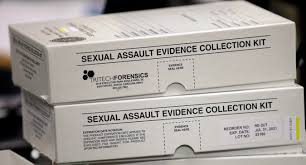The Sexual Assault Evidence Collection Kits (SAECK) 22/04/2019 – Posted in: Daily News
The Sexual Assault Evidence Collection Kits (SAECK)
For: Preliminary; Mains: GS II, III
Topic covered: Women safety
News Flash
The Ministry of Home Affairs has procured 3,120 SAECK and distributed to the States and Union Territories for collecting blood and semen samples, besides other evidence, to carry out immediate investigations into sexual assault cases.
The Sexual Assault Evidence Collection Kits (SAECK) or ‘rape investigation kits’ are designed to carry out immediate medico-legal investigation and aid in furnishing evidence in sexual assault and rape cases.
The SAECKs or ‘rape investigation kits’ were procured with financial support under the central government’s ‘Nirbhaya Fund’.
The Directorate of Forensic Sciences (DFSS), a wing of the home ministry, has issued two guidelines — one for investigators and prosecutors for collection, storage and transportation of forensic evidence in sexual assault cases; and the second for medical officers dealing with sexual assault cases.
Features
- The kit has a set of test tubes and bottles, which mention contents and specifications.
- These kits also contain instructions on collection of evidence from the crime scene.
- The SAECKs would be sent to the closest laboratory and within two months the results would be out.
- Training to medical and police offices are being given on how to use the kits (already trained 2,575 investigators, 1,648 prosecutors and 927 doctors).
- The Delhi-based Lok Narayan Jai Prakash National Institute of Criminology and Forensic Sciences (LNJP NIC&FS) is undertaking training of medical officers from states and union territories.
Advantages
The kits are expected to help law enforcement agencies to ensure effective investigation in a timely manner for better prosecution and convictions in sexual assault cases.
Background
Louis R. Vitullo developed the first kit in the late 1970s in order to provide a more uniform protocol for evidence collection after sexual assaults. For years, the standardized tool was referred to as a Vitullo kit. Today it is colloquially referred to as a rape test kit or a rape kit, which is used interchangeably to refer to the specific evidence that is obtained through the use of the rape kit.
Source: India Today

